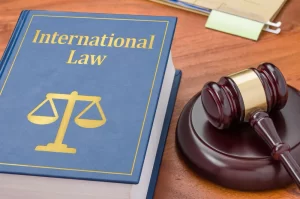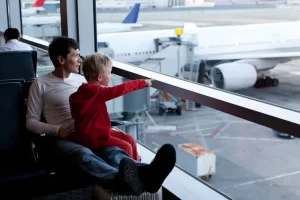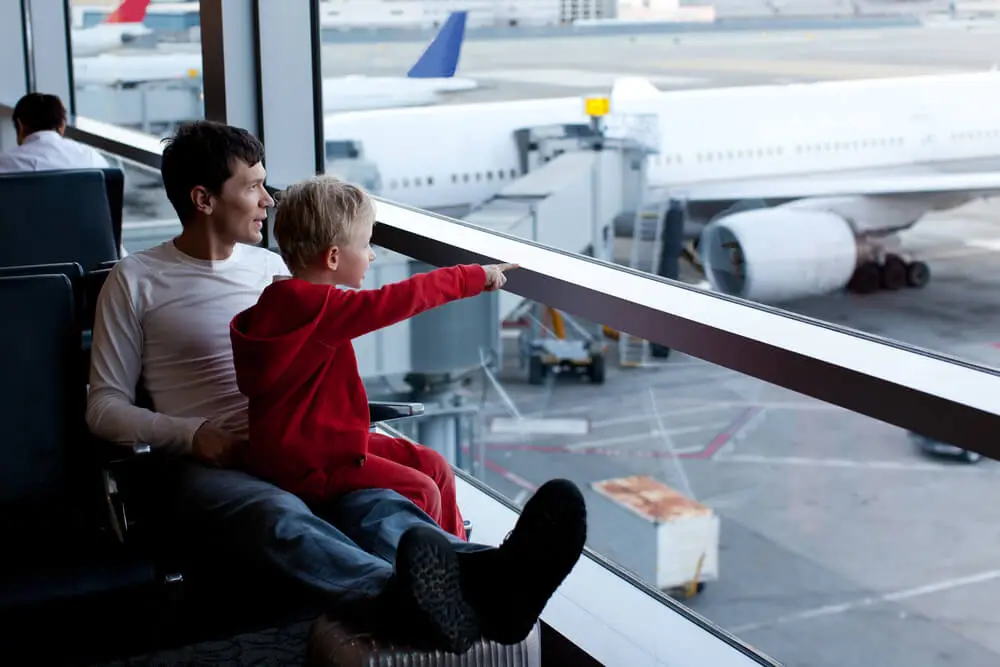More International Couples Are Having Children, But Divorce Can Lead to Complex Custody Battles If Parents Want to Reside in Different Countries. These Battles Can Involve Difficult Visitation Schedules and Even International Abduction.

Globalization is changing the panorama in our business and personal relationships. It is common for partners from different countries of origin to formalize their relationship and have children. Unfortunately, many couples divorce, and when one parent wants to return to their home country, international child custody becomes an issue. Child custody is frequently a hot-button issue in divorce. The complications of parenting time, overnight visits, and shared vacations are challenging topics for a couple separating in the same state, let alone internationally. There are cases where a parent will remove the child without permission and go to another country to avoid having to share custody or because of a particular situation, such as abuse.
When Moving Abroad Strains Family Bonds
Acclimating to a new country and culture can be a struggle, even under the best circumstances. When a spouse gets a job abroad, the transition for the whole family is challenging. If one spouse has family in the area, it can be helpful, at least at first. But when relationship troubles brew, homesickness can take over, and the only solution for the other spouse is to take the child and go back to their country of origin. Perhaps a separation had begun, but child custody and support issues were too big of a stumbling block. Maybe substance abuse or domestic violence is involved, and the victim is afraid for their child’s safety.
Why International Custody Cases Are Complex
International custody disputes are different than domestic custody disputes in many ways. One of the most significant differences is that of jurisdiction. If a spouse moves from Clifton to Hoboken, the state jurisdiction remains the same. However, other factors determine the jurisdiction of the family living outside of the United States. In some countries, child support custody laws differ significantly from domestic ones. Also, support and custody laws determined in one country may not necessarily be applicable in another. Having a lawyer who can help you is of the utmost importance.
Scheduling Parenting Time Across National Borders
The first hurdle is scheduling parenting time. If the parents live in different countries, there are significant costs for travel, especially for more minor children who will need a chaperone. Due to the distance traveled, visits are usually established over more extended periods than a few nights a week. If one parent lives in New Jersey and the other in France, it could take two days to get there. Unfortunately, this frequently means that there will be interruptions to the child’s school schedule. Also, when a child or teenager lives abroad for an extended period, it can be emotionally challenging, either because they are leaving their friends from home or because they are lonely and haven’t made any friends in the country they are visiting. Parents who struggle with making the right decisions in the best interests of their children may need to rethink their parenting plan and arrive at a solution where distance isn’t as much of an issue.
The IPKCA and International Child Abduction Law
The International Parental Kidnapping Crime Act (IPKCA) act was signed into law by President Clinton in 1993. It makes the removal of a child from the U.S. or holding a child outside of the U.S. with the intent of obstructing the parent’s custodial rights a federal crime punishable by up to three years in prison. When a child is removed from a parent’s custody, retained, and unable to return to the custodial parent or legal custody is interrupted, it is a federal offense. The law does list affirmative defenses, such as a parent acting on a valid court order from the correct jurisdiction, fleeing from domestic violence, or when the given circumstances were beyond the parent’s control, and they were unable to return the child on the agreed-upon date.
How Does the Hague Convention Safeguard Parental Rights in Custody Disputes?
In 1980, the U.S. created the Hague Convention on the Civil Aspects of International Child Abduction, also known as the Hague Convention. It is an international agreement that curtails the issue of international child abduction and provides a legal venue to facilitate the expeditious return of children to their lawful custodians. Eighty-one are contracting members of the Convention. According to the Convention, child abduction occurs when a child is wrongfully removed from the rightful custody of a parent or guardian or prohibited from returning to their habitual residence.
Anyone who wants to claim a wrongful abduction or retention can apply at the Central Authority of the state or country of the child’s usual residence, as long as the government has a contract with the Convention. The application must include the personal information and birthdate of the child, the basis of the claim for the child’s return, the party responsible for the wrongful taking or retention, and as much information as possible regarding the child’s present location. The request for action must be submitted before a year has passed since the incident.
The Uniform Child Custody Jurisdiction and Enforcement Act (UCCJEA) enforces the statutes in the Hague Convention by giving the New Jersey court jurisdiction over these matters.
Warning Signs of Potential Parental Abduction
Threats to take the child out of the country (“you will never see them again”) from a parent who has strong emotional and family ties to a country in which they are a citizen can indicate a desire to take the child. If the child talks about a parent’s plans to take them on a trip or find their passport, that is another sign. A parent with no ties to the state where they live can work remotely or be financially independent, making it easier to leave the country permanently. Additionally, when a parent quits their job, sells their home or terminates their lease, and liquidates other assets, they could be preparing for a move.
The Roadblocks to Recovering Abducted Children Internationally
Stopping an abduction in progress is an arduous undertaking that may or may not result in the immediate return of the child. Usually, the abducting parent is long gone before the problem is identified. There is a narrow window of opportunity, and several moving parts must fall in just the right place to counteract the abduction.

The first resource is local law enforcement, which will report the child as missing and enter their name into the NCIC-MPF (National Crime Information Center – Missing Persons File). The FBI and INTERPOL should also be contacted. The National Center For Missing and Exploited Children has a toll-free number that can be used to spread the information further and increase the possibility of having the child returned. An application from the office of the Hague Convention can facilitate the interception of the child and parent by authorities. Calling the embassy or consulate of the destination country is of benefit. Still, it is vital to remember that even in countries cooperating with the Hague Convention, the U.S. has no jurisdiction. The treaty is an agreement, not an obligation. If a voluntary return is not a viable option, the parent seeking the child cannot “snatch” them from the abducting parent. They will have to go through the courts and legal system of the host country. Courts in some countries do not consider the child’s best interests, and legal battles can drag on for years.
Consider Advice from a New Jersey International Custody Lawyer
Divorce can be an emotionally draining process, even more so when there are child custody disputes. The best way to prevent the potential removal of your child from the country by your ex is meticulous preparation. A pound of prevention is worth an ounce of cure. While we work to mediate (or litigate) a child custody plan that is acceptable for you both, we can take preventative measures to keep your child in the country.
Our experienced attorneys at The Montanari Law Group will request that a judge instill prevention protection for the child, such as a no-removal clause, which prevents one parent from taking the child out of the country without the expressed written consent of the other parent. We can also request that the child not be given a passport without both parents’ signatures (if the child is under 14).
There is no time to waste. It is essential to take the necessary actions required to protect your family in Millburn, Totowa, Kearny, Clifton, Haledon, Hoboken, Caldwell, Montvale, and throughout Passaic County, Hudson County, Essex County, and Bergen County, New Jersey. Call us today at (973) 233-4396 to get started. We can also be reached online. We look forward to explaining how we can help you.

